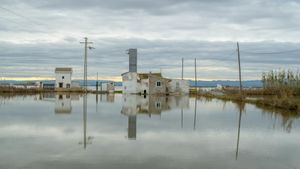This year’s international climate talks are taking center stage as negotiators gather for COP29, held in Baku, Azerbaijan. The event is expecting to tackle the pressing issues surrounding climate finance—a term used to refer to funds dedicated to mitigate climate change and adapt to its consequences. Often, these discussions pivot around how wealthy nations, responsible for the majority of historical emissions, can compensate developing nations as they strive to combat climate change.
Indeed, the stakes are high. For Canada and other affluent nations, the question looms large—how much should they contribute to help those less fortunate? Wealthy countries, having emitted about half of the total global emissions since the mid-19th century, face mounting pressure to step up their game. This COP meeting may very well be the pivotal moment determining the future financial support for climate projects ranging from renewable energy initiatives to preservation of vulnerable ecosystems.
According to Bill Hare, CEO of Climate Analytics, the negotiations are fraught with tension. "It’s pretty high stakes," he notes, emphasizing the necessity for significant strides toward resolving these financial commitments.
The heart of the matter lies within the concept of climate finance—an acknowledgment recognizing wealthier nations, guilty of contributing significantly to climate change, must assist poorer nations grappling with its aftermath. The stark reality is this: the international agreement set forth years ago targeted for $100 billion to be mobilized annually by 2020. Yet, this target wasn't met until 2022, leaving many countries struggling to access the funds they need.
Soomin Han, who serves as the climate finance policy analyst at the Climate Action Network Canada, highlights the deep-seated ramifications of this funding shortfall. "That really led to broken trust between global north and south," Han explains. With negotiations for a new ambitious international climate finance arrangement underway, some analysts like Han deem it utterly necessary. This is not just about financing projects anymore; it’s about building trust and ensuring global collaboration.
The pressing questions abound: How much should wealthy countries now contribute to meet the modern financial demands of developing nations? Estimates suggest these nations may need upwards of $1 trillion annually to fulfill their goals. Meanwhile, the United Nations Trade and Development institution has put forth the figure of $1.46 trillion by 2030, arguing it is on par with what developed countries invest on military spending and significantly less than fossil fuel subsidies.
Under the existing commitments, Canada doubled its international climate finance pledge to $5.3 billion over five years, raising the stakes even higher as advocates like Naomi Johnson, co-chair of the Canadian Coalition on Climate Change and Development, argue this should be tripled to $15.9 billion. Canada is expected to play this central role at COP29, leading negotiations as more countries such as China and the Gulf states find themselves under scrutiny for their increasing emissions rates.
Evidently, tackling climate finance during COP29 intertwines complex layers of negotiations. Catherine Abreu, director of the International Climate Politics Hub, emphasizes the role Canada must play as the global discussion navigates through barriers. Canada is seen as not only participating but also piloting the charge by bringing to light eligibility criteria for contributors to expand this group.
There’s also the pressing matter of how these funds will be delivered. Many advocates are pushing for more government grants rather than loans to avoid pushing developing countries even farther under debt. This preference stems from analyses indicating nations needing funds for climate finance are already struggling with their existing debt, which was estimated at $59 billion for repayments compared to the $28 billion received from climate funds. This dynamic only adds to the urgency for change.
Minister of Environment and Climate Change, Steven Guilbeault, has asserted Canada’s commitment to pivot from loans toward grants, aiming for even distribution of financing input. Yet there’s skepticism about whether this can be achieved. Advocates are pressing for at least 60 percent of funds to be allocated for grants, emphasizing the time-sensitive need for these resources.
Discussions do not end there; the negotiations will also need to address why and how to track financial resources accurately and the split between public and private contributions. Through it all, observers have reiterated the importance of separating the loss and damage fund, which aims to address already existing climate crisis consequences from the new funding targets discussed at COP29.
The overarching sentiment leading up to these discussions is both hopeful and pragmatic. Observers recognize the COP29 talks as not merely another gathering but as the moment to bridge the divides among countries on this highly sensitive issue. The outcome could very well determine the future of climate finance globally and lay the groundwork for cooperative climate action moving forward.
With this historic backdrop, COP29 stands at the crossroads for climate finance negotiations, pivotal for billions living on the front lines of climate change impacts. Will the participating nations finally align their actions with their promises? The world watches—hoping for progress, asking for accountability, and demanding the transparency necessary to restore the trust of those still waiting for help.



